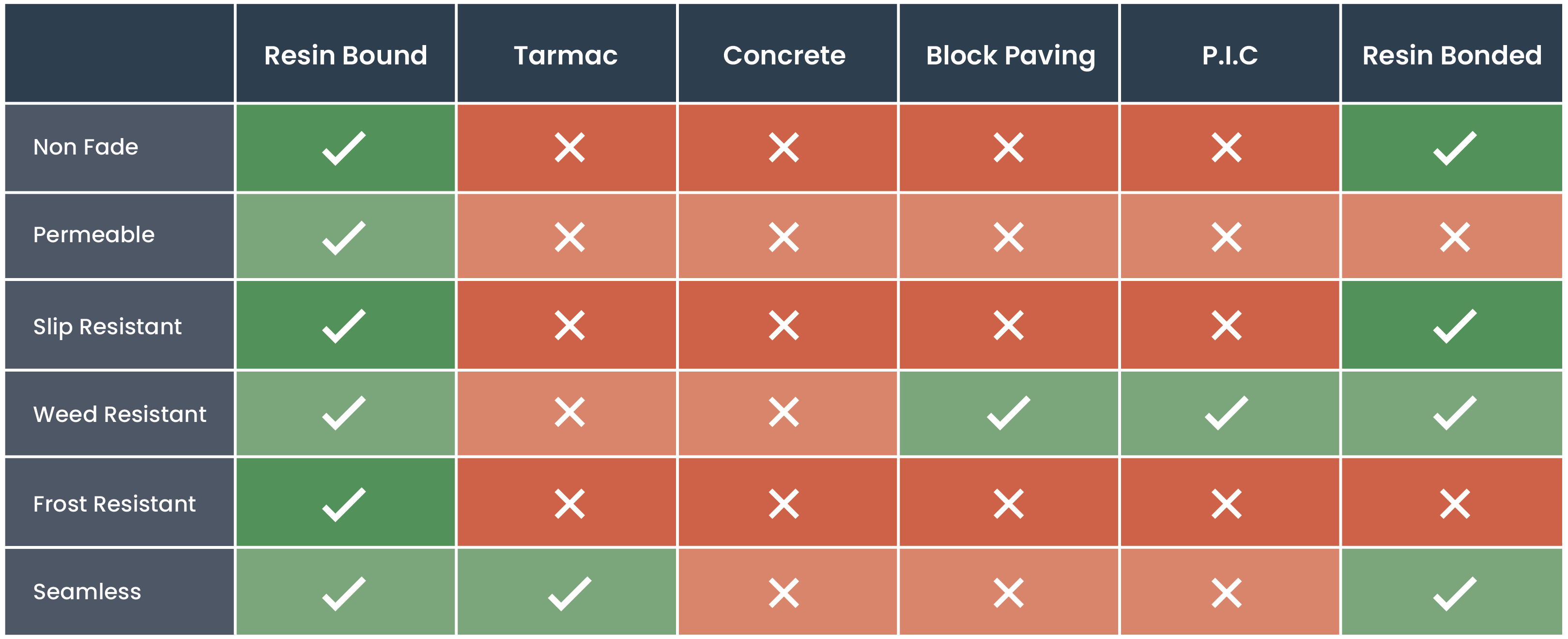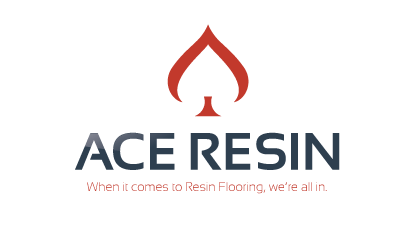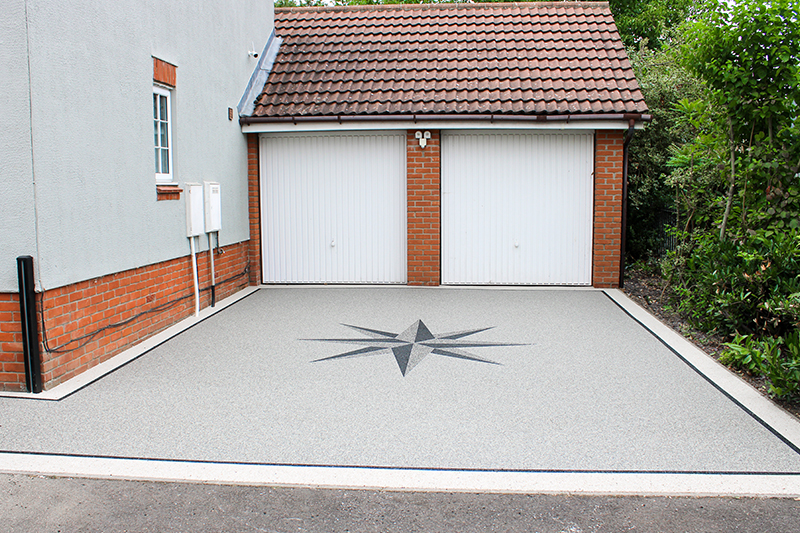The Ultimate Guide to Resin Bound Surfacing
When it comes to modern paving solutions, resin bound surfaces are leading the way. Known for their durability, permeability and aesthetic appeal, they offer a long-lasting alternative to traditional loose gravel, tarmac or block paving. But what exactly is resin bound and why is it becoming the go-to choice for homeowners and businesses across the UK?
Why Choose a Resin Bound System?
Resin bound paving stands out for its durability, low maintenance and aesthetic appeal. Unlike traditional materials, it offers a combination of practical benefits that enhance both function and style.

What This Means for You:
- No Fading: Resin bound surfaces maintain their colour over time, unlike tarmac, concrete, and block paving, which can fade with exposure to weather.
- Permeability & Drainage: The porous structure allows water to drain naturally, reducing puddles and eliminating the need for planning permission under SUDS regulations.
- Slip Resistance & Safety: A textured finish ensures better grip, making it safer in wet conditions compared to tarmac and concrete.
- Weed Resistance & Easy Maintenance: With no gaps or loose stones, resin bound surfaces prevent weed growth, requiring minimal upkeep.
- Durability in All Weather: Frost-resistant properties prevent cracking and wear over time, unlike traditional materials that can be affected by extreme temperatures.
- Seamless Finish: A smooth, joint-free appearance enhances aesthetics and eliminates trip hazards, setting it apart from block paving and other segmented surfaces.
How is Resin Bound Installed?
The installation process requires precision and expertise. Here’s a quick overview of how professionals lay a resin bound surface:
- Base Preparation – A solid, porous sub-base (such as asphalt or compacted stone) is prepared to ensure stability and proper drainage.
- Mixing the Resin and Aggregate – Using a forced action mixer, aggregates are blended with high-quality resin to achieve a consistent mix.
- Application & Troweling – The mixture is poured and evenly spread using a hand trowel to create a smooth, even surface.
- Curing Time – The surface is left to set for around 24-48 hours before it can be used.

Resin Bound vs. Resin Bonded: What’s the Difference?
Many people confuse resin bound with resin bonded surfaces, but they are quite different:
- Resin Bound: Fully permeable, smooth and made by mixing aggregate with resin before application.
- Resin Bonded: Non-permeable and involves applying resin to a surface first, then scattering aggregate on top, creating a rougher texture.

Is Resin Bound Surfacing Worth it?
Resin bound paving is a great choice for any property, combining durability, easy maintenance and a polished look. Its permeable surface helps manage water runoff naturally, reducing the risk of puddles and drainage issues. Built to last, it keeps its smooth finish for years and suits everything from driveways to commercial spaces.
At Ace Resin, we take pride in delivering top-quality resin bound surfaces, using the best materials and expert craftsmanship to ensure a flawless, long-lasting result. Whether you need a new driveway, a stylish path, or a large-scale paving solution, our team works closely with you to create something that looks great and stands the test of time.
Contact us today to receive a free quote and see how we can transform your outdoor space

DONNA JONES
HEAD OF SALES
Donna Jones, Head of Sales at Ace Resin, has 40 years of construction experience, including two decades at the forefront of resin-bound surfacing. Passionate about innovation and sustainability, she plays a key role in supporting contractors across the UK, helping them enhance their projects with premium, eco-friendly solutions and expert training.

